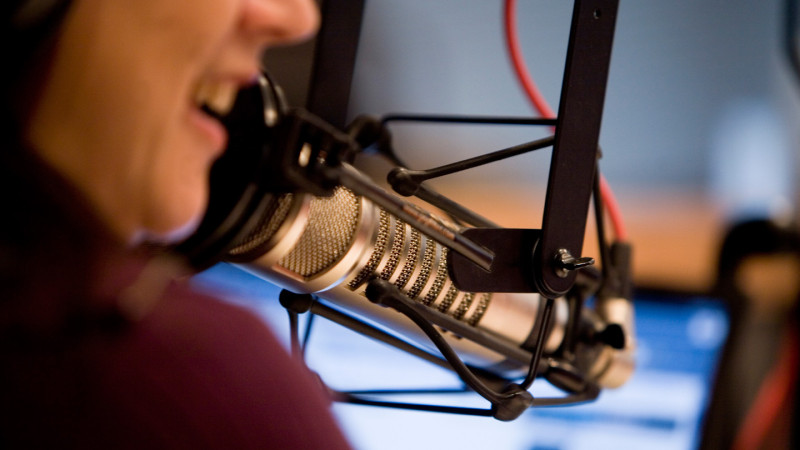“It’s the correct way. I mean, heaven forbid, us reporters, want to have our names pronounced correctly,” he answers.
But here’s the thing, I tell Arellano, “I’m Korean-American. My last name is Kim, or that’s the way I pronounce it, but in Korean it would actually be Geem, and if we were even going to go further I should really be signing out: This is Geem Quee-nuh Seuk, right?”
“You should totally do that,” Arellano quips.
“But I’d feel sorta silly,” I share.
“You shouldn’t feel silly,” Arellano counsels. “You see, if anything, you have some ethnic studies courses that you have to take so you’re not going to feel silly about that. And look at all the European language loan words that we have.”
And it’s true, you rarely hear public radio-type listeners mispronouncing words like c’est la vie or garçon.
“A lot of those words we are forced to pronounce them as close to the actual pronunciation,” Arellano adds. “And if you don’t, somehow you’re not cultured — French being the best example.”
At the same time, Arellano says lots of Americans don’t think twice about butchering Spanish. But he says it’s 2015, and Latinos are now California’s largest ethnic group.
“Maybe if I grew up in the 1950s, instead of Gustavo Arellano, I’d call myself Gus Arriola, like the great cartoonist,” Arellano says. “But now I don’t have any shame in saying my name. I don’t have any shame in correcting people who call me Ar-ruh-LAH-noh. More than anything, by pronouncing something correctly, you’re just making people smarter.”
But it’s not so cut-and-dried for all Latinos.
“You gotta ask people,” Adolfo Guzman-Lopez says. “For example, the former head of the teachers union in L.A. His name’s not John Pérez. It’s John Purr-REZ.”
I asked Guzman-Lopez: When you’re not on the air, how do you pronounce your name?
“Well it depends on whether I felt you could handle a Spanish pronunciation,” he says. “If I saw you and I thought, oh man she can’t handle it … ‘Hi, my name is uh-DALL-foh.’”
So then, why does he say his name with a Spanish pronunciation on air?
“Because I can,” Guzman-Lopez says. “And because my mom would get really pissed off if she heard me say it any other way.”
Fair enough. Nobody wants to upset their mom. But I have this question: Arellano and Guzman-Lopez pronounce their names in Spanish because they say it’s the correct way. But then, why do they say Los Angeles instead of Los Ángeles, like the you’d say it in Spanish?
“And, I think, that’s what drives non-Spanish speakers crazy,” Guzman-Lopez says. “Why not San Pedro? Why not Los Feliz? After all, it was a Californio-Spanish speakers that gave it that name. It seems like a whim, doesn’t it?
“A little bit,” I answer.
But then Guzman-Lopez and I start hashing it out. He reconsiders and he says, maybe it is whim. And in a way, doesn’t that just sum up the story of California?
It’s made up of people from a bunch of seemingly random countries, who’ve all assimilated in very different, very personal — and seemingly whimsical ways. You can see it in our food and our music and in our language.

